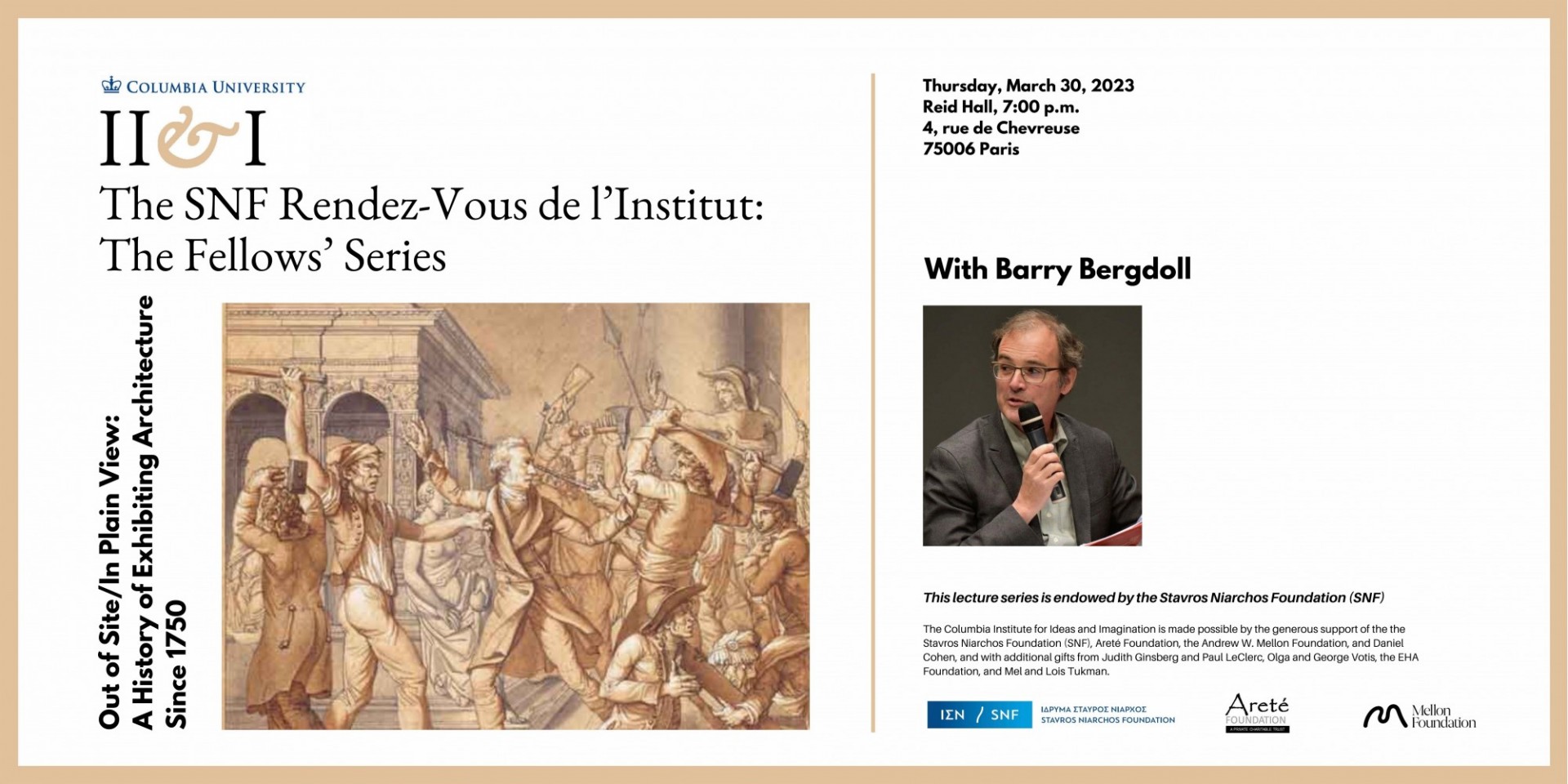
Reid Hall - March 30 - 7pm
This Faculty Focus is part part of the SNF Rendez-Vous de l'Institut: The Fellows' Series, organized by the Institute for Ideas and Imagination. It is co-sponsored by Columbia Global Centers | Paris.
Surrounding us and housing us, architecture largely forms a background. Beginning in the mid 18th century, architects sought to conquer new exhibition spaces despite obvious challenges of exhibiting one building within another. This paradoxical culture of display has played an important, changing, and intriguing role in the evolution of the modern architectural profession and of its public perception. In this talk, based on a book project in progress, Barry Bergdoll will explore the origins of the modern architectural exhibition, trace key aspects of its complex evolution, and reflect on the relevance of the practice today.
Barry Bergdoll is Meyer Schapiro Professor of Art History at Columbia University. His broad interests center on modern architectural history, with a particular emphasis on France and Germany since 1750. His interests also include the intersections of architecture and new technologies of representations in the modern period, especially photography and film. He served as Philip Johnson Chief Curator at the Museum of Modern Art from 2007 to 2014. He has curated exhibitions intended to offer more inclusive visions of subjects from Mies van der Rohe (and his relationship to garden reform and landscape), to the Bauhaus, Henri Labrouste, Le Corbusier, Latin American post-war architecture, and most recently Frank Lloyd Wright. He delivered the 2013 Mellon Lectures at the National Gallery of Art in Washington on the history of exhibiting architecture since 1750.